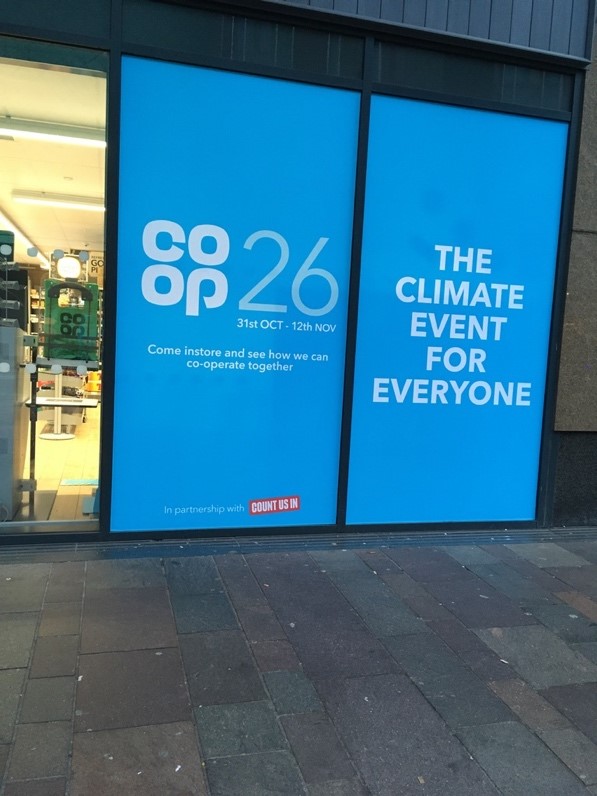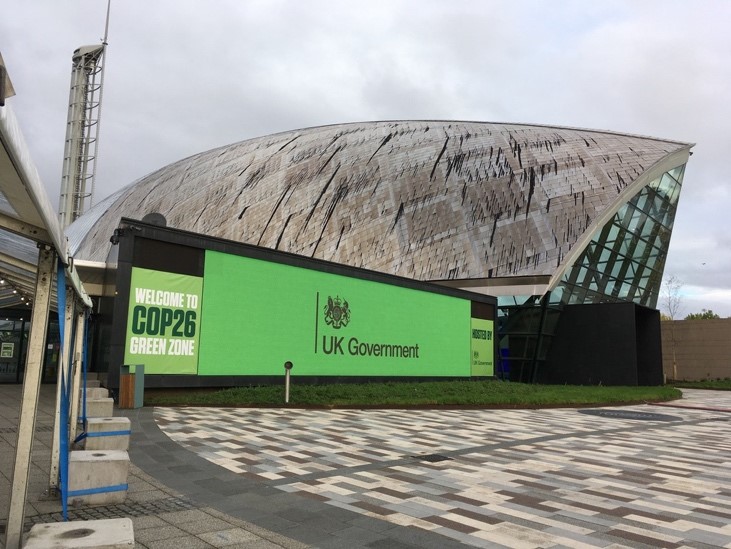Lorraine Whitmarsh is Professor of Environmental Psychology in the Department of Psychology at the University of Bath, and Director of the Centre for Climate Change and Social Transformations (CAST).
The UN climate talks in Glasgow are a critical moment for political action on climate change – but they also represent a key opportunity to engage the public with climate change. There is daily media coverage of COP26 and global agreements to halt deforestation, promote green finance, and cut emissions. And government, businesses, media, and community groups are using this moment to launch green pledges, and to raise awareness of what individuals can do to tackle climate change. All of this is likely to increase public awareness of and support for climate action.

Even before COP26, we were seeing record levels of public concern about climate change. In the Centre for Climate Change and Social Transformations (CAST) we track public attitudes and behaviour on climate change, and our latest polling shows we reached highest yet levels of concern at 83% in September 2021. Furthermore, most (68%) think the UK is already feeling the effects of climate change. This contrasts with 10-15 years ago when most saw climate change as an risk for future generations.
And people want more action now on climate. In the run up to COP26, UK polling found that a minority of the public (40%) were confident that the UK government would take the actions needed to help combat climate change within the next few years, and three-quarters (76%) thought the UK should do more to tackle it. Our own research similarly shows the UK public are ahead of the government in terms of wanting bold climate action – including being prepared to change lifestyles to help cut emissions. Most in the UK support net zero policies, such as frequent flyer levies, subsidies for electric vehicles, phasing out gas/coal boilers, and environmental charges on products (see figure below). Most want action to be taken more quickly than currently planned, with over half (54%) believing the 2050 net zero target should be brought forward. There is also strong support for climate justice, including increasing climate finance aid by the UK to support poorer countries.

And a similar picture emerges in other countries, too. We launched new findings this week at COP26 – CAST’s panel discussion on ‘Catalysing our Net Zero Future: working with people to take action on climate change’ was the first event in the Green Zone on Monday (watch again here) – showing that most people across the world are worried about climate change, feel personal responsibility to act, and agree (up to 84% agreement in some countries) that tackling climate change requires drastic changes to current lifestyles and societies.

How can we ensure this unique window of opportunity that COP26 presents for engaging the public with climate change does not close by the end of November? Organisations need to ensure climate change is embedded in decision-making structures, so it doesn’t get side-lined by other priorities. And we should encourage individuals to discuss climate change and net zero actions they’re taking with their family, friends, neighbours, and colleagues in order to break the climate silence, and make low-carbon lifestyles more ‘normal’ and desirable. Policies that make low-carbon choices cheaper and easier, and do so in a way that is fair and improves wellbeing, are also critical to remove barriers to behaviour change.
Despite the UK government’s eschewing behaviour change as part of its Net Zero Strategy, we know it will be an essential component of reaching net zero. Reassuringly, evidence discussed here indicates a strong public mandate for rapid, ambitious, and fair climate action – including measures that involve lifestyle change – which should spur leaders after COP26 to implement transformative climate policies.
All articles posted on this blog give the views of the author(s), and not the position of the IPR, nor of the University of Bath.
Respond




